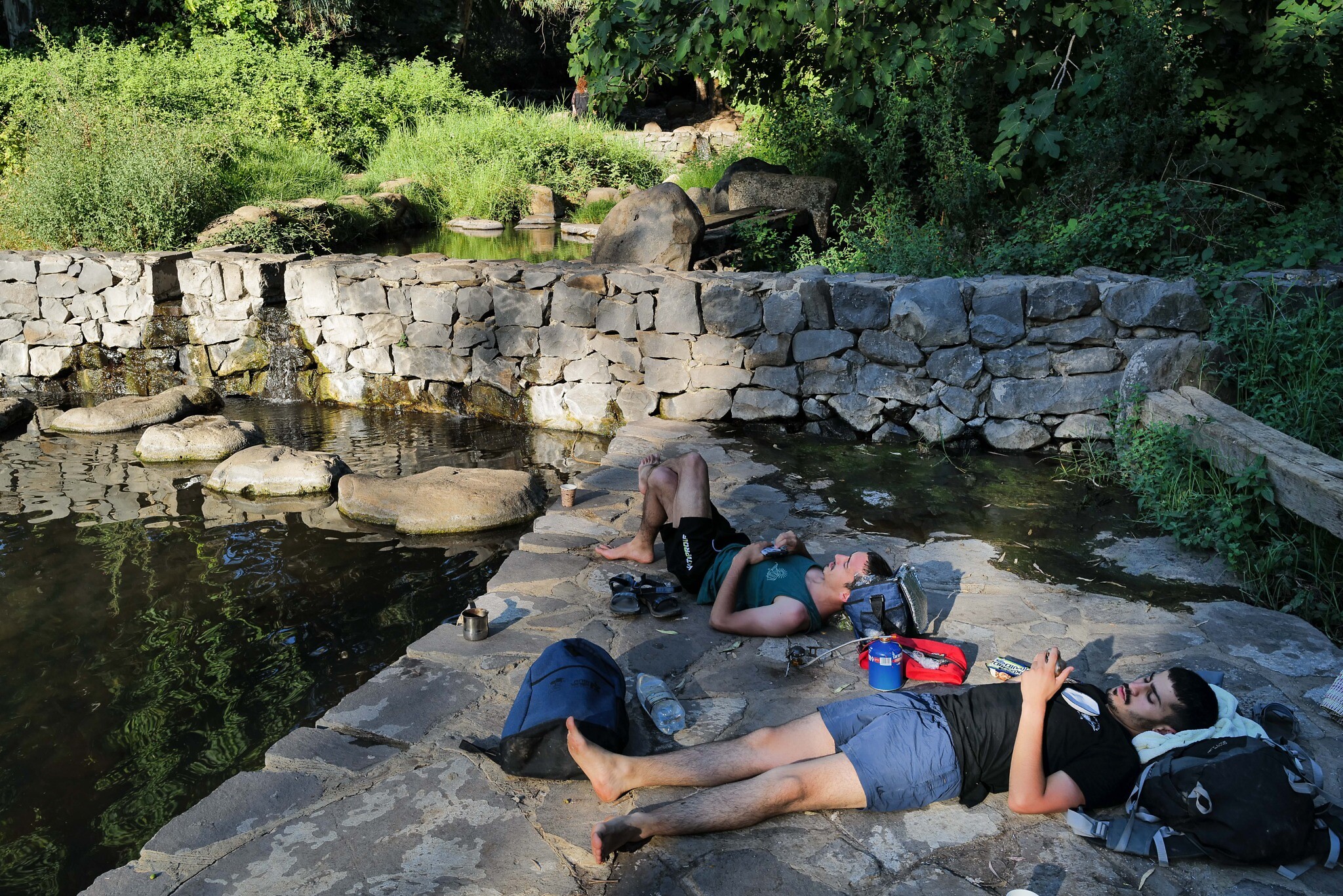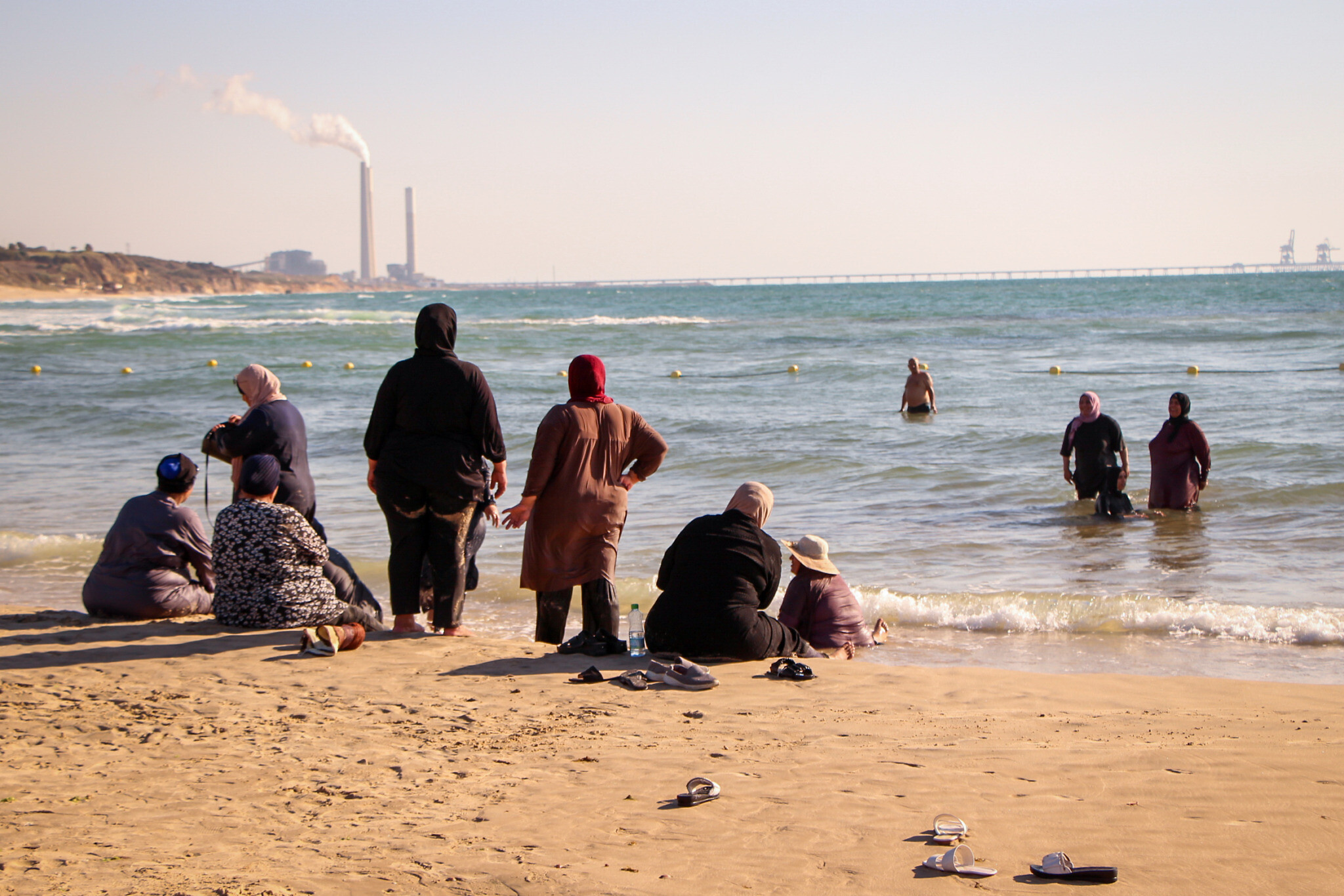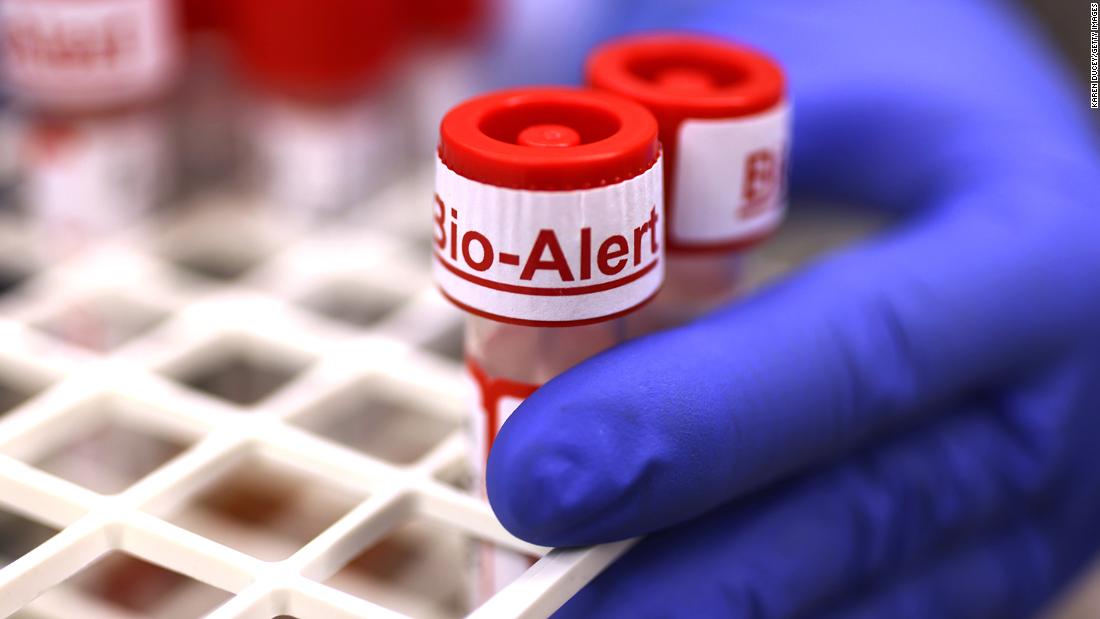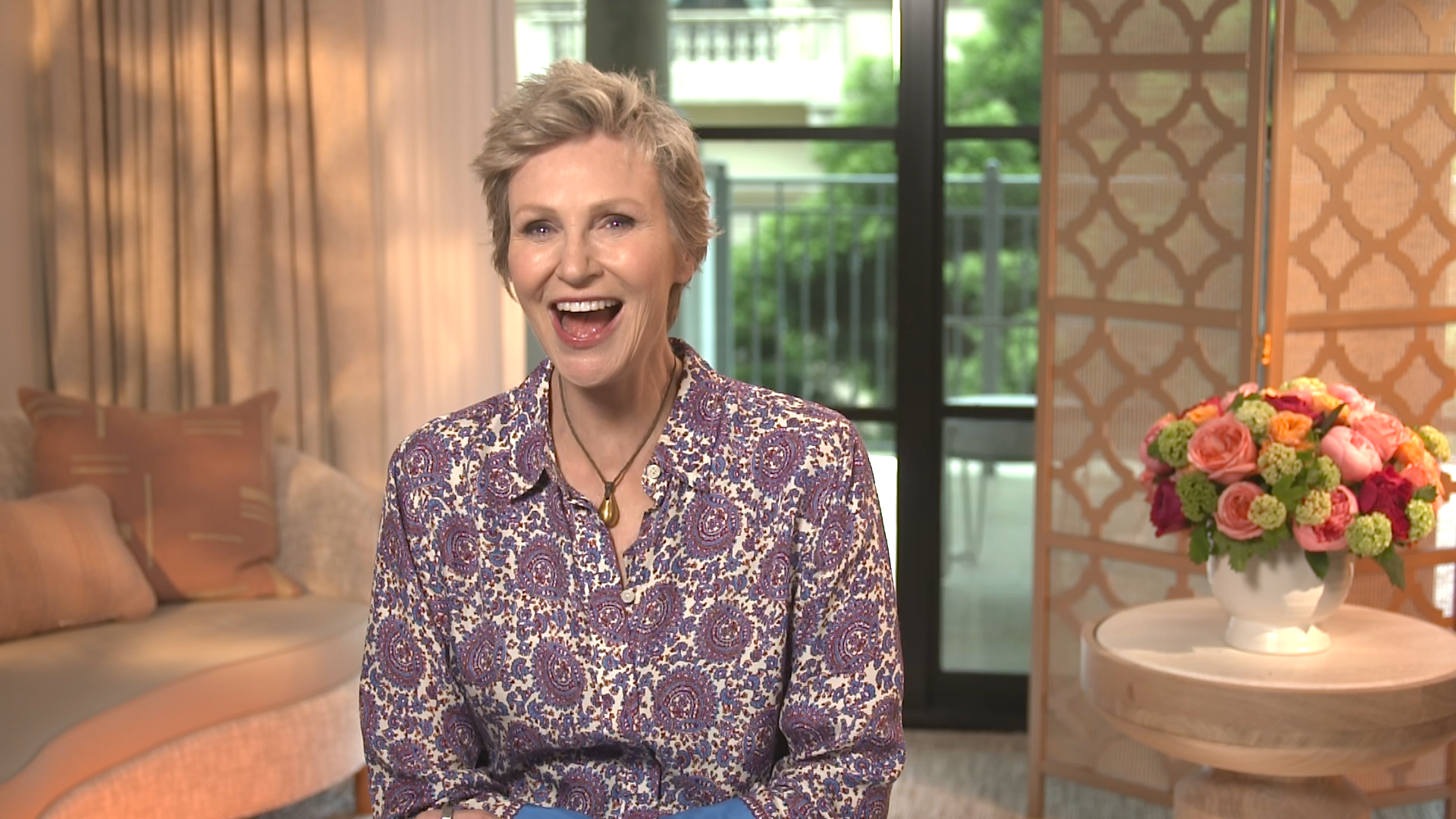[ad_1]
The Health Ministry issued an extreme temperature warning as a heatwave intensified on Wednesday, with its peak expected on Thursday.
The ministry said in a statement on Tuesday evening that the heat was not expected to ease for a number of days.
The sweltering temperatures are accompanied by high levels of humidity, meaning that it feels far hotter, potentially posing a health risk to some.
Health officials said the elderly and those with chronic diseases should be particularly careful as the mercury rises.
In addition, the public was warned to avoid exposure to the sun and heat as much as possible and to avoid any unnecessary physical exertion.
In addition, people should drink water and try to remain in an air-conditioned environment as much as possible.
Wednesday’s temperatures are forecast to hit 30°C (86°F) in Tel Aviv with 59 percent humidity, 32°C (89.6°F) in Jerusalem with 19% humidity, 28°C (82.4°F) in Haifa alongside 79% humidity, 34°C (93.2°F) in Kiryat Shmona coupled with 65% humidity, 36°C (96.8°F) in Beersheba with 51% humidity and 40°C (104°F) in Eilat with 25% humidity, the IMS said.
On Thursday, temperatures are expected to hit 32°C (89.6°F) in Tel Aviv with a rise in humidity up to 68%, 34°C (93.2°F) in Jerusalem where humidity levels will reach 27%, 29°C (84.2°F) in Haifa coupled with 67% humidity, 37°C (98.6°F) in Kiryat Shmona with a 58% humidity level, 38°C (100.4°F) in the desert city of Beersheba which will see 40% humidity and 39% humidity compounding Eilat’s 41°C (102.2°F) temperatures, according to the IMS.
Temperatures and humidity will then remain high for a number of days before beginning to drop in the first half of next week.
Israel has so far experienced relatively average summer temperatures this year.
Meanwhile, Europe has sweltered through a heatwave that sparked fires in the continent’s south, and caused the mercury to rise above 40°C (104°F) in the United Kingdom for the first time on record.
Climate scientists have warned that such extreme weather events will become more frequent due to global warming.
According to a recent report by the Haaretz newspaper, the IMS is predicting that the country will suffer heatwaves lasting 7-10 days starting from 2030, with temperatures reaching 50°C (122°F) in some parts of the country.
By 2060, the average number of annual heatwaves will rise from its current four to six, with the average summer temperature jumping from 33.5°C (92.3°F) to 35°C (95°F), according to current estimates.
Daily highs during heatwaves will reach the mid-40s and sometimes 50°C (122°F) in the Jordan Valley by 2050, while the Negev in Israel’s south will also experience days reaching 40°C (104°F) to 45°C (113°F).
The IMS has also warned that Israel will have 8-13 fewer days of rainfall in the coming years, according to a report by Channel 12.
Agencies contributed to this report.
[ad_2]
Source link






